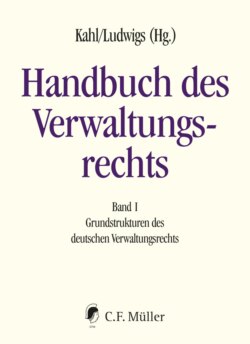| 1. | The term “administration” in the modern sense is closely related to the principle of the division of power. This core idea of modern constitutional political thinking did not gain ground until the 19th century (par. 1). |
| 2. | Therefore, in the political and legal thinking of the early modern period, it was not the well-known differentiation between legislative, executive, and judicial power that was essential but rather the distinction between policy (Policey) and justice (par. 3). |
| 3. | Policy included all functions of the early modern state. In addition to justice, these were primarily legislation, controlling, and sanctioning (par. 4). |
| 4. | At its core, policy meant establishing a good order by legislation and attempting to enforce statutes by controlling and sanctioning all violations of them (par. 5). |
| 5. | Obviously, the idea of a “good order” and the “common good” changed significantly between the 16th and 17th century. At the beginning of the modern period in the 16th century, this was mainly a question of the moral order (par. 7 et seqq.). |
| 6. | In the 17th century, the question of an effective economic order became increasingly central: The most important aim of internal politics and administration in the 18th century was to establish an order of “common wealth”, i. e. an order of society with a big number of wealthy subjects able to pay high taxes to the prince (par. 11 et seqq.). |
| 7. | This change of political aims fundamentally transformed the way the administration worked: Administration was no longer mainly a matter of controlling and sanctioning but rather of economic planning (par. 20 et seqq.). |
| 8. | Over the course of the 18th century, states in Germany set up new authorities aligned to the new economic aims of internal politics and administration. This is most clearly visible in Prussia with the Generaldirektorium at the central level of administration and the Kriegs- und Domänenkammern in the provinces. Most other princes in the Holy Roman Empire tried corresponding measures, but they usually failed due to the resistance of the estates which were afraid to lose their inherited influence on authorities (par. 35 et seqq.). |
| 9. | During the 18th century, the new term Policeyrecht emerged. The subject matters of this Policeyrecht were more or less those of what is nowadays besonderes Verwaltungsrecht (par. 50 et seqq.). Nevertheless, the Policeyrecht of the 18th century can hardly be described as an early mode of modern administrative law. This is so for two reasons: |
| 10. | First, the premodern Policeyrecht was part of a legal order that was completely different from the modern one. The modern legal order is based on the fundamental distinction between public and private law, a distinction unknown in premodern legal thinking. Therefore, the old Policeyrecht was formally part of the so-called Deutsches Privatrecht or Partikularrecht, which was the counterpart of the Ius Commune. But in fact, Policeyrecht was hardly a subject of jurisprudence. Rather, it was a subject of political science and economics (par. 50 et seqq.). |
| 11. | Second, modern administrative law is more than a mere collection of statutes, as was the case with the old Policeyrecht. Unlike the latter, modern administrative law is not only a state instrument for steering individuals and society as a whole. Rather, it has the function of protecting individuals against infringements by the state. By contrast, the old Policeyrecht had nothing to do with this essential idea of modern administrative law (par. 58). |
